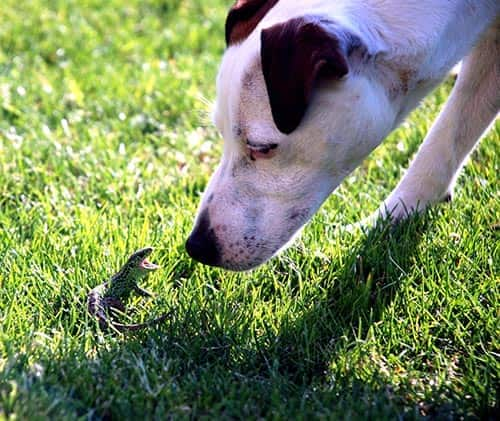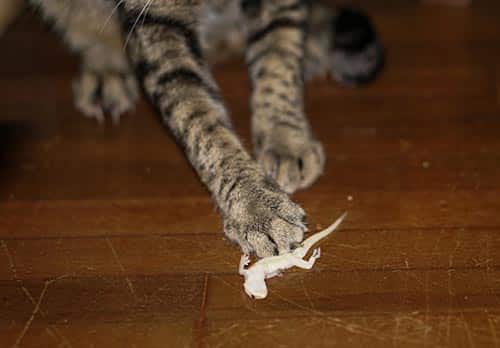
-
Find the right food for your pet
Take this quiz to see which food may be the best for your furry friend.
Find the right food for your pet
Take this quiz to see which food may be the best for your furry friend.
Featured products
 Adult Healthy Cuisine Roasted Chicken, Carrots & Spinach Stew Dog Food
Adult Healthy Cuisine Roasted Chicken, Carrots & Spinach Stew Dog FoodDelicious roasted chicken paired with tender vegetables in a succulent stew
Shop Now Adult 7+ Perfect Digestion Chicken, Whole Oats & Brown Rice Recipe Dog Food
Adult 7+ Perfect Digestion Chicken, Whole Oats & Brown Rice Recipe Dog FoodScience Diet's breakthrough nutrition supports ultimate digestive well-being & healthy microbiome for dogs age 7+
Shop Now Small & Mini Savory Stew with Chicken & Vegetables Dog Food
Small & Mini Savory Stew with Chicken & Vegetables Dog FoodA delicious complement to the nutrition of Science Diet Small & Mini 7+ dog food
Shop NowFeatured products
 Adult 7+ Senior Vitality Chicken & Vegetable Stew Cat Food
Adult 7+ Senior Vitality Chicken & Vegetable Stew Cat FoodImproves Everyday Ability to Get Up & Go
Shop Now Adult Savory Entrée Can Variety Pack Cat Food
Adult Savory Entrée Can Variety Pack Cat FoodPrecisely balanced nutrition with the delicious taste of savory minced chicken to help fuel the energy needs of cats during the prime of their life
Shop Now Adult 7+ Tender Tuna Dinner Cat Food
Adult 7+ Tender Tuna Dinner Cat FoodWith delicious chunks in a decadent gravy
Shop Now -
Dog
- Dog Tips & Articles
-
Health Category
- Weight
- Food & Environmental Sensitivities
- Urinary
- Digestive
- Joint
- Kidney
-
Life Stage
- Puppy Nutrition
- Adult Nutrition
- Senior Nutrition
Cat
- Cat Tips & Articles
-
Health Category
- Weight
- Skin & Food Sensitivities
- Urinary
- Digestive
- Kidney
-
Life Stage
- Kitten Nutrition
- Adult Nutrition
Featured articles
 Do Dogs and Cats have Belly Buttons?
Do Dogs and Cats have Belly Buttons?Learn whether cats & dogs have belly buttons like humans, what the function is, and if there are any health concerns associated with it.
Read More Does My Pet Hate Me?
Does My Pet Hate Me?Learn tips for bonding with your pet if you've ever thought, 'My dog doesn't like me, or 'Why do I have a standoffish cat?'
Read More Why Are Dogs and Cats So Cute?
Why Are Dogs and Cats So Cute?If waggy puppy dog tails and furry kitten yawns make you swoon, you're not alone. Why are cats so cute? And, dogs too! Let's find out!
Read More -


Should you be worried if your pet ate a lizard? This is a fairly common question during warmer months and in warm climates where reptiles tend to roam. These small and speedy critters are as tempting to your pet as any other small prey animal. But are they harmful for your pet to eat? Read on to learn what to do if your dog or cat eats a lizard.
My Dog Ate a Lizard!

Some dog breeds have higher prey drives than others, but given the chance, any dog might happily gobble down a small lizard or frog. Unlike eating a small rodent, ingesting reptiles carries the risk of toxicity. Some toads and lizards secrete poison through their skin to help protect them from predators, while other lizards have venomous bites. According to Daily Puppy, even a nonvenomous or nonpoisonous reptile could transmit small parasites or bacteria like salmonella to your pooch, making him ill.
My Cat Ate a Lizard!
So, what should you do if your cat eats a lizard? While it's easier to minimize the risk of your kitty eating or touching lizards by simply keeping her indoors, lizards sometimes find their way inside, giving her an opportunity to pounce and devour before you even realize what happened. Along with the dangers of toxicity and infection, lizards also carry parasites called liver flukes that may be fatal for a cat if they become lodged in her bile duct, says The Nest.
Toxic Lizards
Your pet is unlikely to try to eat large venomous lizards such as Gila monsters (common to the Southwestern desert in the U.S.) or monitor lizards (found in the subtropics of Florida). However, since these lizards have enough venom to kill a dog or cat, keep your pet from trying to play or fight with them. As for North American lizards that are small enough to snack on, juvenile blue-tailed skinks, newts and salamanders all secrete poison through their skin, says The Nest and Cuteness. As for the common gecko, though neither poisonous nor venomous, they carry liver flukes that could seriously harm your cat. Toads also carry these dangerous parasites.
Cane toads, which infest much of Australia, are highly toxic to domestic animals, particularly dogs, according to BioMed Research International. A cane toad's poisonous secretions are even more concentrated in its eggs, so watch out if your pet ingests an entire one. Eating a cane toad can cause neurological and respiratory complications, so it's imperative to rush your pet to the veterinarian.
If you're in western Mexico, watch out if your dog picks a fight with the Mexican beaded lizard. The Saint Louis Zoo notes that this poisonous lizard releases its venom when it bites an attacker.
And if you happen to bring your pet along on a trip to the Sunda Islands, located between Indonesia, Singapore and Malaysia, be sure to watch out for the Komodo Dragon (it's hard to miss as they can grow up to 3 meters long) or the Malayan, which also has a poisonous venom.


Tasty Tips
Young pets may need several visits in their first year for vaccinations. Adult pets generally benefit from annual check-ups, while senior or special-needs pets might require more frequent visits.
Signs of Toxicity or Infection in Your Pet
If your pet eats an unknown lizard, watch for these signs of toxicity:
- Excessive drooling or foaming at the mouth
- Excessive thirst
- Weakness or lethargy
- Loss of appetite
- Vomiting and/or diarrhea
- Pale or yellow gums
- Nervousness or hyperactivity
- Muscle tremors or seizures
- Crossed eyes
- Erratic movement or walking
- Coma
You should also watch for these signs of salmonella poisoning, says Daily Puppy:
- Vomiting or diarrhea
- Appetite loss
- Lethargy
- Swollen lymph nodes
- Shock
- Rapid heart rate
What to Do When Your Pet Eats a Lizard

If you know or suspect that your pet ate a toxic or parasite-carrying variety of lizard or toad, contact your vet immediately. Due to the potential threat of liver flukes, it's wise to always consult your vet if your cat eats a lizard — regardless of the species. Otherwise, monitor your pet and watch closely for any of the symptoms listed above. If you notice signs of toxicity or infection, or if your pet acts abnormally, give your vet a call. Remember that most lizard species in North America are not toxic. Though most carry salmonella, that doesn't necessarily mean that your pet will get sick from eating one.
Preventive Measures
While indoors, keep a watchful eye out for lizards that sneak into the house, and do your best to remove them before your pets get a chance to pounce. Try to supervise your dog and call him away from any reptiles he encounters when outdoors. If you live in an area where lizards are common, consider only taking your dog out on a leash, even within the confines of a fenced yard. This will make it easier to control your pup and keep a close eye on his interactions with his environment.
Though lizards pose some risks to your pet's health, it's not an emergency every time your dog or cat eats one. Learning the types of lizards common to your area and closely watching your pets' activities will help you know when it's time to call the vet.


Jean Marie Bauhaus is a pet parent, pet blogger, and novelist from Tulsa, Oklahoma, where she usually writes under the supervision of a lapful of fur babies.
Related products

Precisely balanced nutrition with the delicious taste of savory minced chicken to help fuel the energy needs of cats during the prime of their life

Improves Everyday Ability to Get Up & Go

Supports energy level and beautiful fur in mature cats

With delicious chunks in a decadent gravy
Related articles

Learn tips for bonding with your pet if you've ever thought, 'My dog doesn't like me, or 'Why do I have a standoffish cat?'

Learn whether cats & dogs have belly buttons like humans, what the function is, and if there are any health concerns associated with it.

If waggy puppy dog tails and furry kitten yawns make you swoon, you're not alone. Why are cats so cute? And, dogs too! Let's find out!

Discover how your pets might be impacted by the loss of another. Learn how to recognize their signs of grieving & how to help them cope with their loss.

Put your pet on a diet without them knowing
Our low calorie formula helps you control your pet's weight. It's packed with high-quality protein for building lean muscles, and made with purposeful ingredients for a flavorful, nutritious meal. Clinically proven antioxidants, Vitamin C+E, help promote a healthy immune system.
Put your pet on a diet without them knowing
Our low calorie formula helps you control your pet's weight. It's packed with high-quality protein for building lean muscles, and made with purposeful ingredients for a flavorful, nutritious meal. Clinically proven antioxidants, Vitamin C+E, help promote a healthy immune system.

